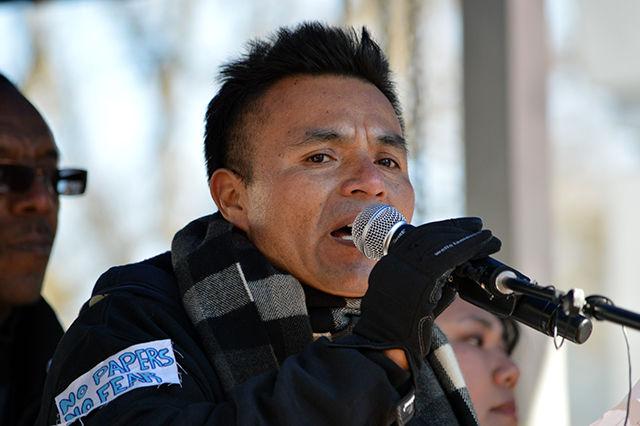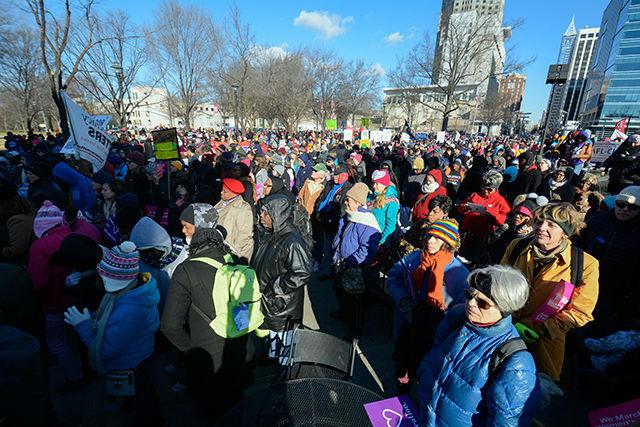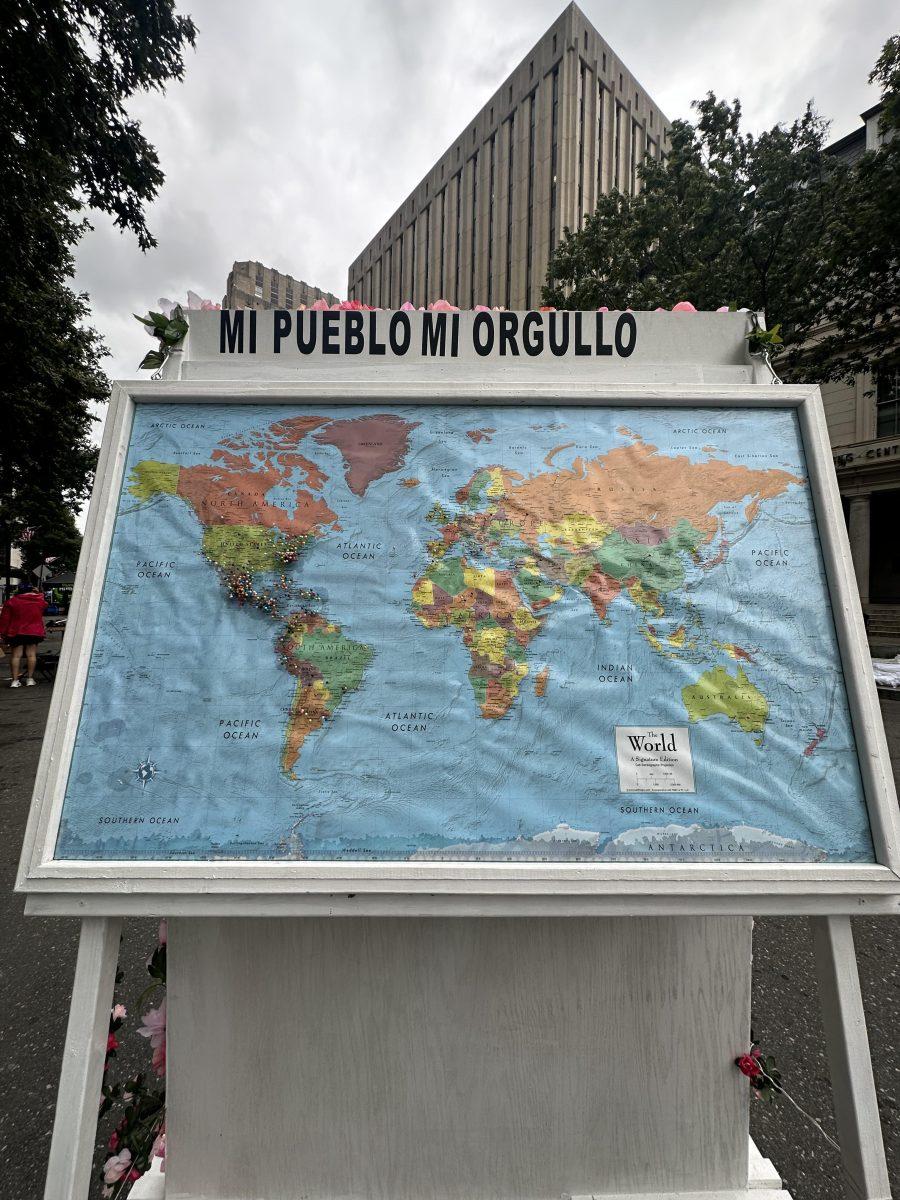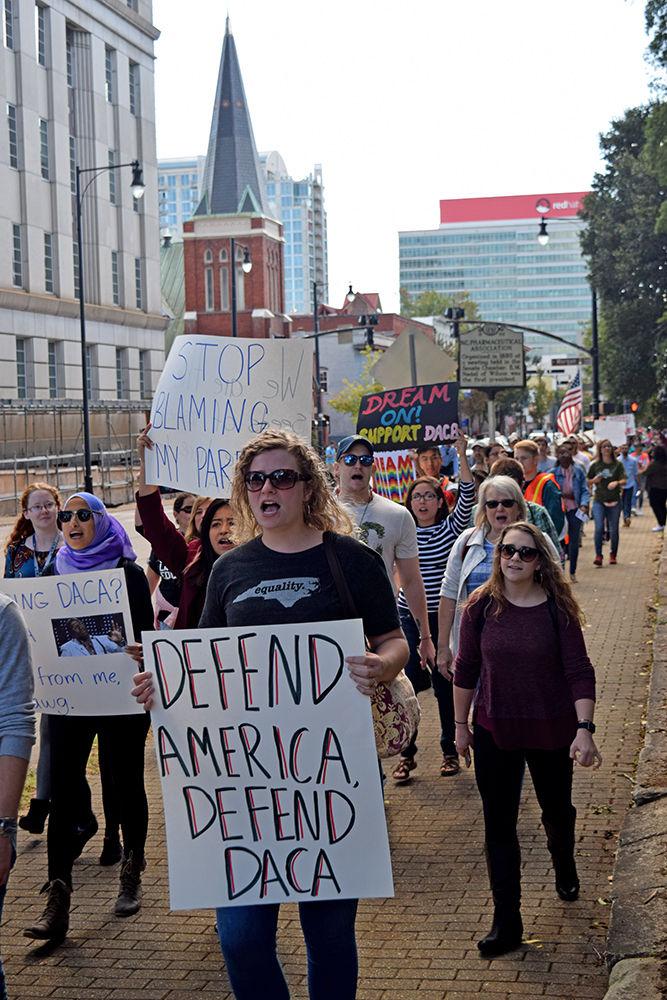Red flags scattered through the crowds in downtown Raleigh on Saturday morning at the 10th annual Moral March on Raleigh and Historic Thousands on Jones Street People’s Assembly Coalition. The red flags portrayed the presence of the Farm Labor Organization Committee, or FLOC, and its support of farmworkers and the Latino community.
According to the FLOC website, its two major missions are “to provide farmworkers with a voice in the decisions that affect them” and “bring all parties to the table to address industry-wide problems.”
FLOC has had a presence in North Carolina since 1998 and is known for its five-year boycott of Mount Olive Pickles. From this boycott, FLOC won a three-way contract with Mt. Olive and the North Carolina Growers Association in 2003 that helped workers in many crop industries other than cucumbers, including sweet potatoes, potatoes, Christmas trees and more, as well as providing H-2A “guest workers” the right to join unions.
The FLOC representatives at the HKonJ rally included individuals from the counties of Wilson, Bailey, Warsaw and Dudley, as well as youth members of the organization.
During the assembly, the vice president of FLOC, Justin Flores, said the committee was present at HKonJ to make improvements in the state for labor employment rights, immigrant rights and voting rights, which is the overarching topic at the rally.
“We are here together with folks around the state that are trying to make some changes for improvements,” Flores said. “Our particular issues are around labor employment rights, exploitation on the job, immigrant rights and the ability for undocumented workers that contribute so much to the economy to be able to get a driver’s license and drive around without being afraid. Those are our own issues of why we are here today, we are also here to support the whole agenda and everyone else here that is trying to make the state a better place.”
According to “A state of fear: Human rights abuses in North Carolina’s tobacco industry,” a research study by FLOC and Oxfam America, 22 out of 86 farmworkers reported that they were paid less than federal minimum wage, and 57 percent of the subjects said they could not meet their basic needs. In addition, the study found that 90 percent of work growers do all year is credited to someone else. This has been accredited to the complications and costliness of the H-2A visa program for growers.
FLOC organizer Cynthia Castillo explained that she “would like to see farmworkers be acknowledged and respected because we all eat due to the work of farmworkers.”
Although the organization made it clear it was not endorsing specific politicians and only issues, Flores said he hopes the government will listen to their arguments and conduct change.
“Unfortunately, we have problems on a national and state level,” Flores said. “Here in North Carolina, the local governments have taken a foolish approach to make things difficult for undocumented workers and workers in general. We have people making minimum wage and getting two or three traffic tickets a month for 200 or more dollars because they have to drive to work every day and pick their kids up from school without a license.
“This is especially a problem in eastern North Carolina and in the counties east of [Interstate] 95, but can be seen around the state. We are telling the Assembly they need to do something. They need to pass a law that allows everyone who lives here to get a driver’s license and make the streets safer for everyone.”
Through the HKonJ protest and through other efforts, such as FLOC’s current Reynolds Tobacco Campaign, the organization continues to strive toward change and to better the lives of farm workers.
As Castillo held her red FLOC flag high above the crowds of the rally, she said, “Our logo is ‘Hasta a la Victoria’ [‘Until the Victory’]. We want change, and we are going to fight for change until we reach that victory.”
Thousands of people brave the cold to attend the 10th annual Moral March on Raleigh and HKonJ People's Assembly on February 13, 2016. The theme of this years event was to get out the vote in response to the controversial voter ID law.









